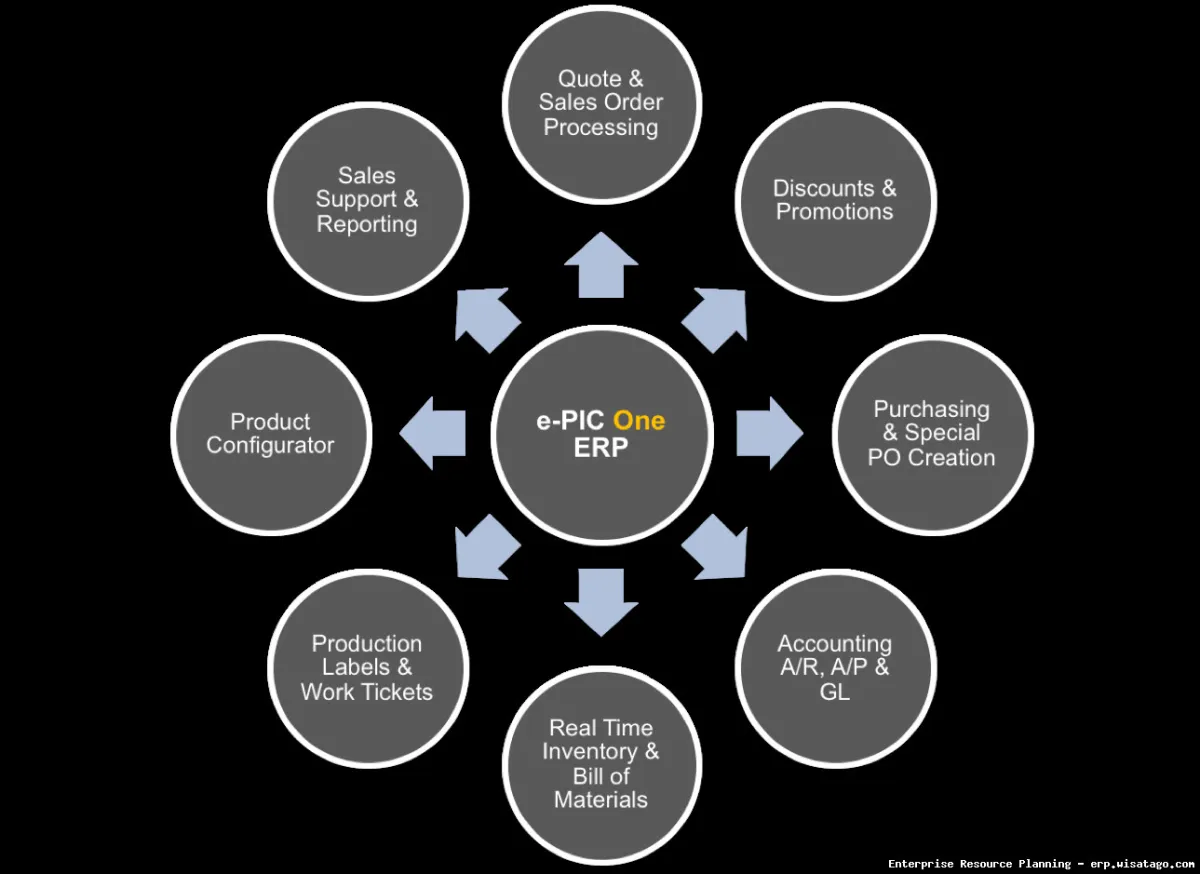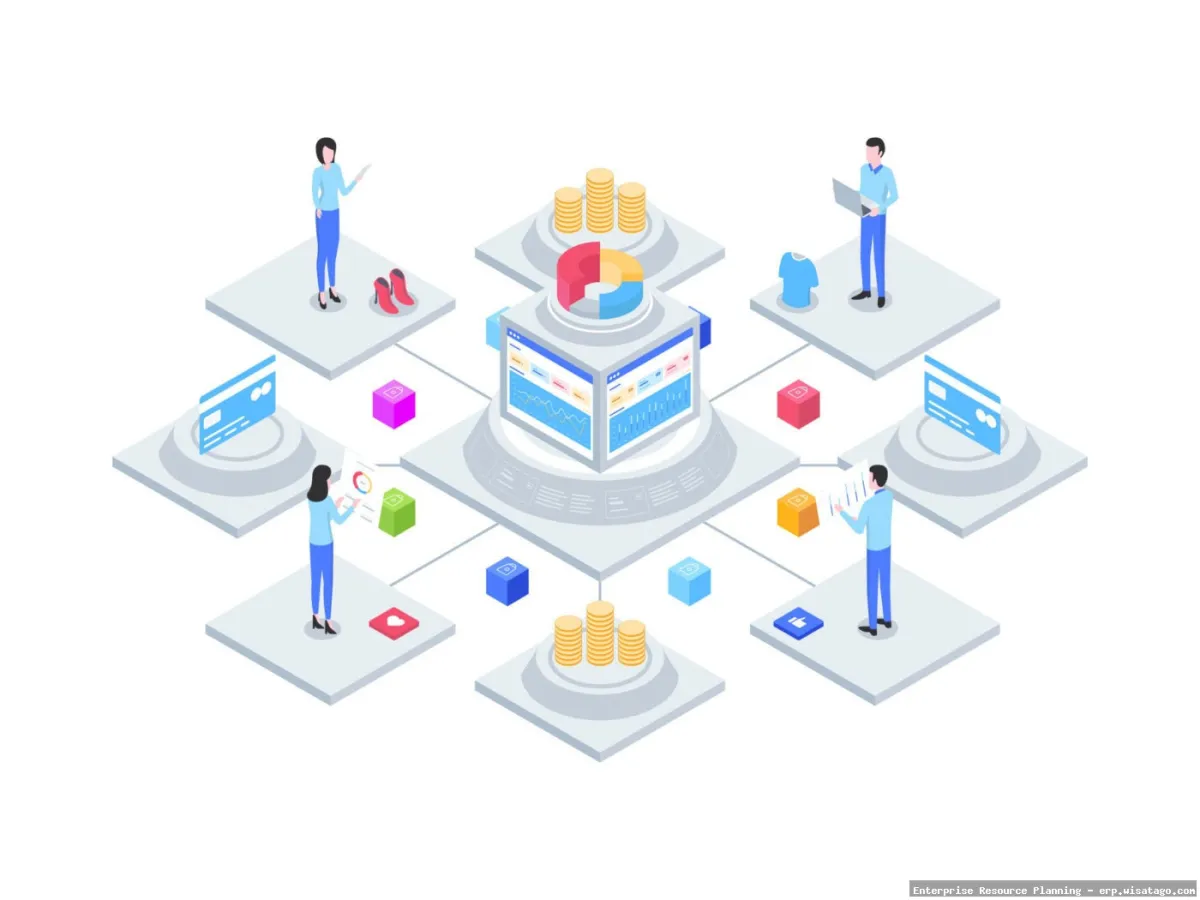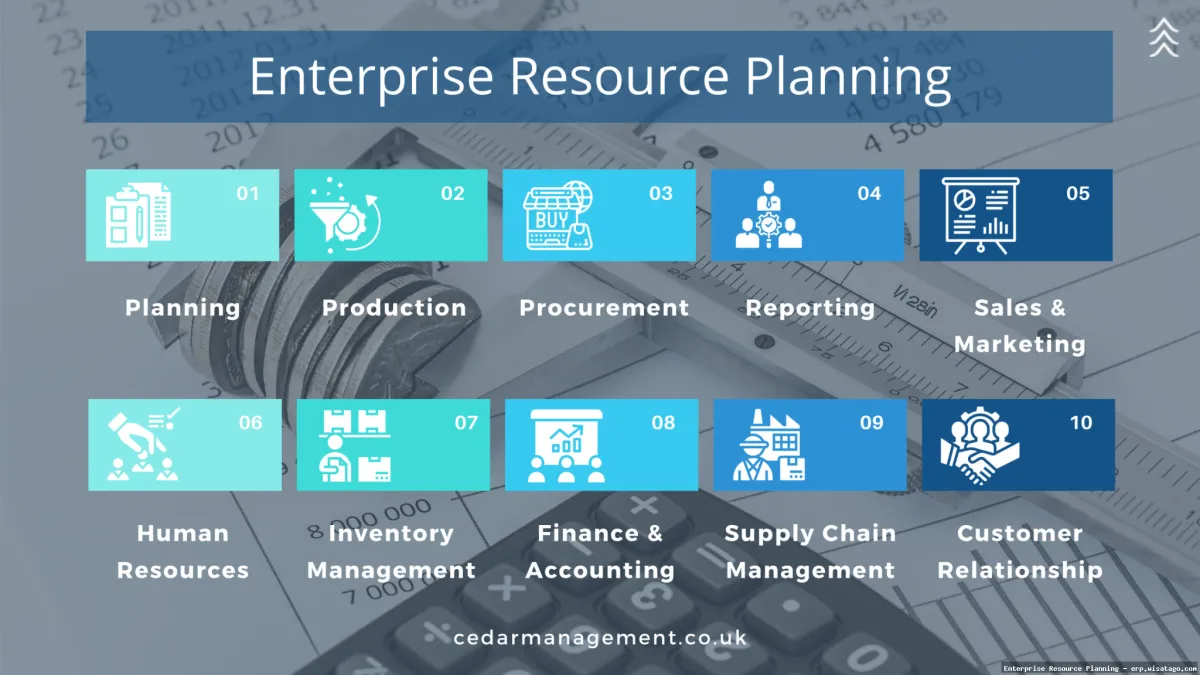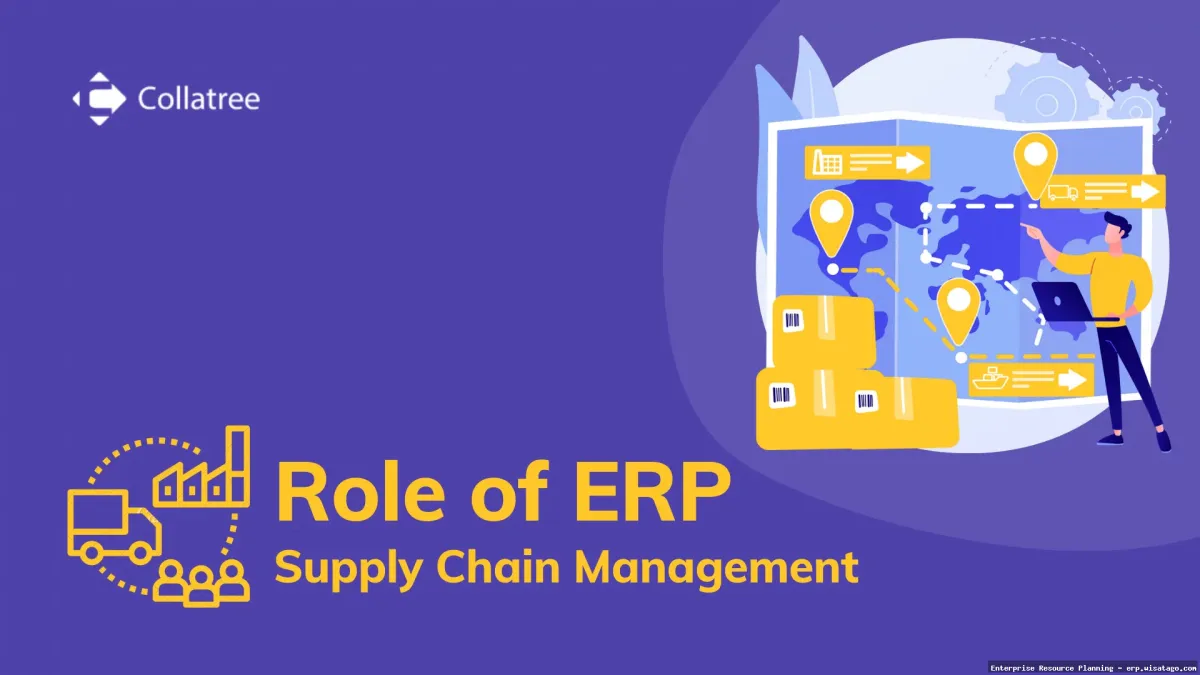Retail Enterprise Management Through Integrated ERP: Complete Guide, Features and Details
Retail. It’s a fast-paced, ever-evolving landscape where customer expectations are constantly shifting and competition is fierce. Managing a retail enterprise effectively requires more than just stocking shelves and processing transactions. It demands a holistic approach, one that connects all aspects of the business – from inventory management and supply chain to customer relationship management and financial reporting. This is where Enterprise Resource Planning (ERP) systems come into play, offering a powerful solution for streamlining operations, improving efficiency, and driving growth.
For years, I’ve worked with businesses of all sizes implementing and optimizing ERP systems, and I’ve seen firsthand the transformative impact they can have on a retail organization. The key is understanding that an ERP isn’t just software; it’s a strategic investment that requires careful planning, execution, and ongoing management. Choosing the right ERP and implementing it correctly can be the difference between thriving in today’s competitive market and struggling to stay afloat.

This article serves as a comprehensive guide to retail enterprise management through integrated ERP. We’ll explore the core features of an ERP system, delve into the specific benefits it offers to retail businesses, address common challenges during implementation, and provide practical advice on selecting the right solution for your unique needs. Consider this your roadmap to navigating the world of retail ERP and unlocking its potential to transform your business.
Understanding ERP and its Core Components
At its core, an ERP system is an integrated suite of software modules designed to manage and automate various business processes. It acts as a central hub, consolidating data from different departments and providing a single source of truth for the entire organization. This eliminates data silos, improves communication, and enables better decision-making.
Key Modules within a Retail ERP System
While the specific modules included in an ERP system can vary depending on the vendor and the needs of the business, some core components are essential for retail organizations:
- Inventory Management: This module tracks inventory levels, manages stock movements, and optimizes inventory replenishment to minimize stockouts and excess inventory.
- Supply Chain Management (SCM): SCM focuses on managing the flow of goods and information from suppliers to customers, including procurement, logistics, and warehousing.
- Point of Sale (POS): POS systems handle sales transactions, manage payments, and track customer data at the point of sale. Integration with the ERP ensures real-time inventory updates and accurate sales reporting.
- Customer Relationship Management (CRM): CRM helps manage customer interactions, track customer preferences, and personalize marketing efforts to improve customer loyalty and drive sales.
- Financial Management: This module handles accounting, budgeting, financial reporting, and compliance, providing a comprehensive view of the company’s financial performance.
- Warehouse Management (WMS): WMS optimizes warehouse operations, including receiving, putaway, picking, packing, and shipping, to improve efficiency and reduce costs.
- E-commerce Integration: This module integrates the ERP system with the company’s online store, enabling seamless order processing, inventory management, and customer data synchronization.
- Analytics and Reporting: Provides real-time data insights through dashboards and reports, allowing businesses to monitor key performance indicators (KPIs) and make data-driven decisions.
Benefits of ERP Implementation for Retail Enterprises
Implementing an ERP system offers a wide range of benefits for retail enterprises, ultimately leading to improved efficiency, reduced costs, and increased profitability. Let’s explore some of the key advantages:
Improved Inventory Management
One of the most significant benefits of ERP is its ability to streamline inventory management. By providing real-time visibility into inventory levels, demand patterns, and supply chain dynamics, ERP helps retailers optimize inventory levels, reduce stockouts, and minimize excess inventory. This leads to lower carrying costs, improved customer satisfaction, and increased sales.
Enhanced Supply Chain Efficiency
ERP systems facilitate seamless communication and collaboration across the supply chain, enabling retailers to optimize procurement, logistics, and warehousing. By automating processes, tracking shipments, and managing supplier relationships, ERP helps reduce lead times, lower transportation costs, and improve overall supply chain efficiency. This ultimately translates to faster delivery times and lower costs for customers.

Streamlined Point of Sale Operations
Integrating POS systems with the ERP provides real-time updates on sales transactions and inventory levels. This eliminates manual data entry, reduces errors, and provides a more accurate picture of sales performance. Furthermore, ERP can help manage promotions, discounts, and loyalty programs, leading to increased sales and improved customer engagement.
Better Customer Relationship Management
ERP systems with integrated CRM modules allow retailers to capture and analyze customer data, personalize marketing efforts, and improve customer service. By tracking customer preferences, purchase history, and interactions, retailers can create targeted marketing campaigns, offer personalized recommendations, and provide more efficient customer support. This leads to increased customer loyalty and repeat business.
Data-Driven Decision Making
ERP systems provide access to real-time data and analytics, enabling retailers to make informed decisions based on accurate information. By monitoring KPIs, analyzing sales trends, and tracking inventory performance, retailers can identify opportunities for improvement, optimize operations, and drive growth. This data-driven approach empowers retailers to make strategic decisions that align with their business goals.
Improved Financial Management and Reporting
ERP systems automate financial processes, improve accuracy, and provide a comprehensive view of the company’s financial performance. By streamlining accounting, budgeting, and financial reporting, ERP helps retailers reduce costs, improve compliance, and make better financial decisions. This leads to increased profitability and improved financial stability.
Challenges in ERP Implementation and How to Overcome Them
While ERP implementation offers significant benefits, it’s not without its challenges. Implementing an ERP system is a complex project that requires careful planning, execution, and ongoing management. Here are some common challenges and strategies for overcoming them:
Resistance to Change
One of the biggest challenges is resistance to change from employees who are used to existing processes. To overcome this, it’s crucial to involve employees in the implementation process, provide thorough training, and communicate the benefits of the new system clearly. Emphasize how the new system will make their jobs easier and more efficient.

Data Migration
Migrating data from legacy systems to the new ERP system can be a complex and time-consuming process. It’s essential to plan the data migration carefully, cleanse the data, and ensure that it’s accurately transferred to the new system. Data validation is crucial to ensure data integrity.
Customization Costs
While ERP systems offer a wide range of features, some businesses may require customization to meet their specific needs. However, excessive customization can be costly and increase the risk of implementation delays. It’s important to carefully evaluate customization requirements and prioritize essential features.
Lack of Proper Training
Insufficient training can lead to user errors and underutilization of the ERP system’s features. It’s crucial to provide comprehensive training to all users, including hands-on exercises and ongoing support. Consider creating training materials tailored to different user roles.
Integration Issues
Integrating the ERP system with other applications, such as e-commerce platforms or third-party logistics providers, can be challenging. It’s important to choose an ERP system that offers robust integration capabilities and to work with experienced consultants who can help manage the integration process.
Selecting the Right ERP Solution for Your Retail Business
Choosing the right ERP solution is crucial for a successful implementation. There are numerous ERP vendors on the market, each offering different features, pricing models, and levels of support. Here are some key factors to consider when selecting an ERP system:
Identify Your Business Needs
Before evaluating ERP systems, it’s essential to identify your specific business needs and requirements. Conduct a thorough assessment of your current processes, pain points, and future goals. This will help you prioritize the features and functionalities that are most important to your business.

Evaluate Different ERP Vendors
Research and evaluate different ERP vendors based on their industry experience, product capabilities, pricing models, and customer reviews. Request demos and speak to existing customers to get a better understanding of their experiences with the system.
Consider Cloud vs. On-Premise Deployment
Decide whether you prefer a cloud-based or on-premise ERP system. Cloud-based ERP systems offer greater flexibility, scalability, and lower upfront costs, while on-premise systems provide more control over data and infrastructure. The best choice depends on your specific needs and budget.
Assess Integration Capabilities
Ensure that the ERP system can seamlessly integrate with your existing applications, such as e-commerce platforms, POS systems, and CRM solutions. Integration is crucial for data synchronization and streamlined operations.
Evaluate the Vendor’s Support and Training
Choose a vendor that offers comprehensive support and training services. A strong support team can help you resolve issues quickly and ensure that your users are properly trained on the system.
Consider the Total Cost of Ownership (TCO)
Evaluate the total cost of ownership, including software licenses, implementation costs, training fees, and ongoing maintenance costs. Don’t just focus on the initial purchase price; consider the long-term costs of owning and maintaining the system.
Conclusion: Embracing ERP for Retail Success
Retail enterprise management through integrated ERP is no longer a luxury, but a necessity for businesses seeking to thrive in today’s competitive landscape. By streamlining operations, improving efficiency, and providing real-time data insights, ERP empowers retailers to make better decisions, improve customer satisfaction, and drive growth. While implementation can be challenging, the benefits of a well-implemented ERP system far outweigh the costs. By carefully planning the implementation, choosing the right solution, and providing adequate training, retail businesses can unlock the full potential of ERP and achieve lasting success.

Conclusion
In conclusion, this article has highlighted the critical role of integrated ERP systems in revolutionizing retail enterprise management. By streamlining operations, enhancing data visibility, and improving decision-making, ERP solutions offer a significant competitive advantage in today’s dynamic retail landscape. From inventory management and supply chain optimization to customer relationship management and financial reporting, a well-implemented ERP system provides a unified platform for managing all aspects of the retail business, ultimately leading to increased efficiency, reduced costs, and improved profitability. The ability to access real-time data and generate insightful reports empowers retailers to respond quickly to market changes and customer demands, ensuring they remain agile and competitive. To better understand how businesses manage resources efficiently, ERP is worth exploring
.
The benefits of integrating an ERP system are undeniable, but the key lies in careful planning, strategic implementation, and ongoing optimization. As the retail industry continues to evolve, adopting an integrated ERP solution is no longer a luxury but a necessity for sustained growth and success. If you’re ready to transform your retail enterprise and unlock its full potential, we encourage you to explore available ERP solutions and consider how they can be tailored to meet your specific needs. Don’t let outdated systems hold you back – embrace the power of integrated ERP and pave the way for a more efficient, profitable, and customer-centric future. Learn more about how an ERP system can benefit your business by visiting our website: https://www.examplewebsite.com/erp-solutions.
Frequently Asked Questions (FAQ) about Retail Enterprise Management through Integrated ERP
What are the key benefits of implementing an integrated ERP system for managing a retail enterprise, and how does it differ from using standalone software solutions?
Implementing an integrated ERP system for retail enterprise management offers numerous benefits over standalone solutions. The primary advantage lies in its ability to centralize data and processes across all departments, including inventory management, point of sale (POS), supply chain, finance, and customer relationship management (CRM). This eliminates data silos, improves communication, and provides a single source of truth for decision-making. Unlike standalone systems that often require manual data transfer and integration efforts, an ERP streamlines operations, reduces errors, and enhances efficiency. This integrated approach enables real-time visibility into key performance indicators (KPIs), allowing retailers to optimize inventory levels, improve customer service, and ultimately increase profitability. Furthermore, a well-implemented ERP system supports scalability and adaptability to changing market demands, crucial for long-term success in the competitive retail landscape.
How can an ERP system help retail businesses optimize their inventory management processes and reduce stockouts or overstocking situations?
An ERP system plays a crucial role in optimizing inventory management for retail businesses, significantly reducing the risks of stockouts and overstocking. By integrating sales data, demand forecasting, and real-time inventory tracking, the ERP provides accurate insights into product movement and customer demand. This allows retailers to implement data-driven inventory planning strategies, ensuring the right products are available at the right time and in the right quantities. The system can also automate replenishment processes, setting reorder points based on historical sales data and lead times. Furthermore, ERP systems often include features such as warehouse management, lot tracking, and expiration date management, which are essential for maintaining inventory accuracy and minimizing waste. The enhanced visibility and control provided by an ERP empower retailers to improve inventory turnover, reduce holding costs, and enhance customer satisfaction by consistently meeting demand.
What are the key considerations when choosing an ERP system for a retail enterprise, and what specific features should a retail-focused ERP include?
Selecting the right ERP system for a retail enterprise requires careful consideration of several factors. Firstly, the system should align with the business’s specific needs and future growth plans. Key considerations include the size of the business, the complexity of its operations, and its budget. Scalability is essential, ensuring the ERP can adapt as the business expands. A retail-focused ERP should include features such as POS integration, inventory management with barcode scanning and RFID support, customer relationship management (CRM), e-commerce integration, and advanced reporting and analytics. It should also support functionalities like promotions management, loyalty programs, and returns processing. Furthermore, the system should be user-friendly and provide robust training and support. Finally, consider the vendor’s reputation, implementation methodology, and long-term support offerings to ensure a successful deployment and ongoing value.